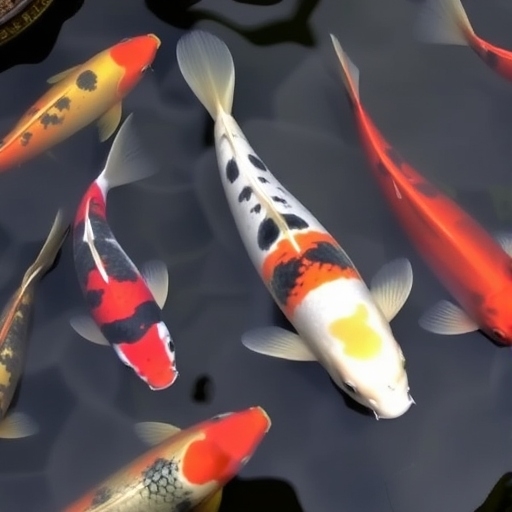
Feeding koi fish properly is crucial to their health, growth, and vibrant coloration. Koi are omnivorous and have specific dietary needs that vary depending on their age, season, and environment. In this article, we’ll discuss the best practices for feeding koi fish and ensuring their optimal nutrition.
1. Understanding Koi Fish Nutrition
Koi require a balanced diet that includes proteins, fats, carbohydrates, vitamins, and minerals. High-quality koi food is formulated to meet these needs. Look for pellets or flakes with:
- Proteins: Essential for growth, especially in young koi.
- Fats: Provide energy and maintain healthy scales.
- Carbohydrates: Support overall energy levels.
- Vitamins and Minerals: Enhance immunity and coloration.
Specialized koi food may also contain color-enhancing ingredients such as spirulina or carotenoids.
2. Seasonal Feeding Guidelines
Koi fish metabolism is influenced by water temperature, so their feeding habits should be adjusted seasonally:
- Spring and Summer (Above 15°C/59°F): Koi are most active during warm months. Feed them high-protein food two to four times daily to support growth.
- Autumn (10–15°C/50–59°F): As water cools, reduce protein intake and switch to wheat germ-based food for easier digestion.
- Winter (Below 10°C/50°F): Koi’s metabolism slows significantly in cold water. Avoid feeding them, as they cannot properly digest food during this period.
Always observe the water temperature to determine the right feeding approach.
3. How Much to Feed Koi
Overfeeding can lead to water pollution and health issues for koi. A good rule of thumb is to feed only as much as your koi can consume within five minutes. Remove any uneaten food promptly to maintain water quality.
Additionally, the size and age of your koi should guide portion sizes:
- Young Koi: Feed more frequently with smaller portions.
- Adult Koi: Feed larger portions less frequently.
4. Supplementary Foods
In addition to commercial pellets, koi can enjoy a variety of natural treats:
- Fruits and Vegetables: Lettuce, peas, watermelon, and orange slices.
- Protein Sources: Shrimp, worms, or cooked rice.
These treats provide variety and additional nutrients but should be given in moderation.
5. Avoiding Common Mistakes
To ensure your koi remain healthy, avoid these feeding mistakes:
- Overfeeding, which causes digestive problems and water pollution.
- Feeding unsuitable or expired food.
- Ignoring seasonal feeding needs.
Conclusion
Proper feeding is essential for the health and beauty of your koi fish. By understanding their nutritional requirements and adjusting their diet to seasonal changes, you can ensure they thrive in your pond. Balanced feeding not only promotes growth and vibrant coloration but also enhances their overall quality of life.

